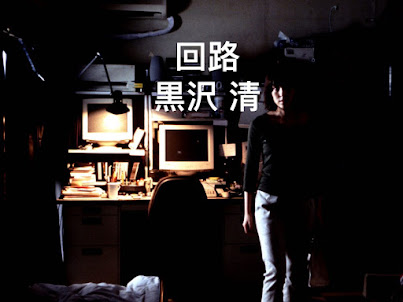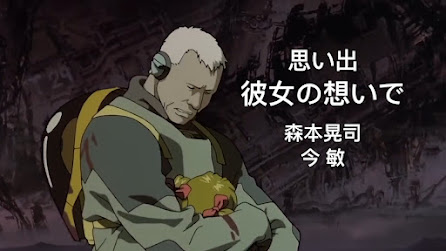Amateur Recommendation Hour: Pulse (2001)
Today’s recommendation is another Japanese horror film by way of a director who is quite adept and familiar with the genre. I’m almost positive that this work will appeal to even the most horror-averse of viewers. Most of its horror does not take place in long abandoned, derelict locations or in the complete pitch blackness and isolation of night. Rather it is the power of suggestion that drives its scares and story forward as much as anything else.
Pulse, directed by Kiyoshi Kurosawa, is about a group of Japanese students who discover a website that promises to allow the users to interact with the dead. Featuring two parallel storylines that intersect in a very natural and believable way. Never feeling like the plot lines intertwine because it was convenient for the storyteller.
I really love the grainy look it goes for. It enhances the uncertainty and feeling of mystery the film is trying to instill in the viewer. Whether intentional or a limitation of the technology of filming in 2001. Its color palette an otherworldly symphony of grays and greens to lend into the tone of the film brilliantly. There’s an emotionally foggy tarpaulin draped over all of its proceedings from an artistic perspective really heightens the feelings of detachment and disorientation that the work is obviously trying to instill in it’s viewers. We are just as confused and out of our element as the characters on screen, transmitting a form of empathy that goes a long way in tethering us to the characters plight in a naturalistic manner.
Scary amongst the crowded and populated is a hard brand of horror to convey in cinema. To create tension, dread, and hostility not from places and worlds far removed from our own, drenched in darkness, and the overtly grotesque is not an easy task. The importance of good sound design is given even more emphasis than it regularly would in horror. And Pulse’s soundscape is cavernous, ominous, and empty, even as the characters go throughout their days, surrounded by others uninitiated to the stories unfolding. And while it isn’t the best I’ve ever seen the "horror during daily life” portrayed it certainly does itself justice with how it transmits the feelings integral to it’s genre to the viewer.
The central conflict isn’t something physical to be confronted tangibly with physical combat or running away. In a very smart and somewhat forward-thinking manner given the recency of the internet in the very early 21st century, the threat in Pulse has far less to do with the proximity of a terrifying beast and more to do with a lurching, burgeoning beginning of something deceptively sinister beneath an otherwise optimistic Pandora’s Box.
While its flaws are noticeable, among them being a tendency to explain itself and its themes a little too much as well as getting a little too big for its britches, they did not detract from the experience enough to keep me from giving this work a seal of approval. Even if the journey is more rewarding than the destination it sets out for that does not invalidate the journey itself. Pay-off is a really hard aspect to master in any form of storytelling, especially one that tries to make its presence felt as much as Pulse does.
My personal interpretation of this work is that it is a criticism of the concept of a utopian afterlife that incentivizes living for the thought of the next life instead of the one you have now, within your grasp, and available for enrichment in the present moment. Living for today is the most bold choice we can make for ourselves for a positive future. Not living for the promise of an immortal tomorrow. Fearing moral retribution in the form of being locked away from experiencing an endless paradise cannot lead to organic kindness, because it’s the right thing to do as opposed to having something intangible to gain from it.
How well it delivers on those messages through its thematic explorations are up for debate as it doesn't stick the landing quite as well as it would have hoped, but the trudge to the climax/resolution is so rewarding it's hard to knock it for trying as it did. In many ways it felt, not necessarily prophetic, but forward thinking in how its horror is realized and the mechanism through which it is delivered to its world. And in particular the loneliness and isolation that the internet has made for a society that relies on it for most communication. In 2001 it’s not hard to imagine that the internet, as brave, bold, and new as it was, also housed as many uncertainties as it did wondrous discovery.
It’s somewhat of an insight into the varying mindsets of the newer technologies of the late 20th and early 21st century. These new means of connection offering as much in the form of isolation and misery as the former. Over 20 years later it’s not as mysterious as it once was as we know the isolation that can form over remote connections. We know the joys and insights as much as the dangers that the internet can afford.
And it is the invasion of the internet upon our daily lives that I think Pulse explores through its artistic representation of the curiosity that it housed for so many at the start of the new millennium. The results of this invasion are clear for everyone to see, but it’s easy to forget that there was a time where the mystery and confusion of what this strange new technology was to people and how they were able to wrestle with it in a time before the chaos was so readily available to us in easy to access places.



Comments
Post a Comment